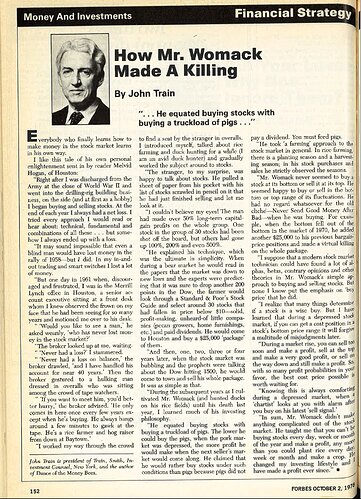The current economic recovery is the third longest in history, and if it goes on another year, it will be the longest in history — there’s nothing to say it can’t [keep rising],” said Marks, founder and co-chairman of Oaktree, the largest investor in distressed assets in the world. “There are no laws of nature or physics at work here. So there’s nothing to say it can’t go on another year, another two years, another three years. Anything’s possible.
No economic recovery has lasted more than 120 months, or 10 years. The U.S. recovery is in its ninth year. While there is no apparent reason why the recovery couldn’t hit a new record, Marks said it might be one of those historical limits that could stick.
When there’s too much money, when there’s too little risk aversion, when there’s too little fear, too much eagerness, etc. — that’s how you get excesses to the upside that have to be corrected to the downside.
The “supreme irony” of the shift to passive is that the actions of active managers do determine the weightings of the stocks listed in an index in the first place, Marks said. “There’s a trend [toward] passive investment on the premise that the active investors don’t really know what they’re talking about. And yet the [modus operandi] of the passive investor is to emulate the decisions made by the active investors who they think are idiots. It doesn’t make any sense. That’s what passive is doing today and we have to wonder about the wisdom of passive investing.
Read the full article here - http://knowledge.wharton.upenn.edu/article/104717/
Contrary to what Mark Zuckerberg mentioned, the benefits of GDPR regulations are not being made available to people all over the world. Facebook intends to change its terms of service to put all non-European users under the jurisdiction of its U.S. headquarters rather than the international headquarters in Dublin, Ireland. That means users in Africa, Asia, Australasia, and Latin America won’t be covered by the European Union’s General Data Protection Directive, which goes into effect on May 25.
Under the GDPR, companies can be fined up to 4 percent of their annual global revenue for not having sufficient customer consent to process data or ignoring the “privacy by design” principle that states customers’ privacy rights must be handled as a core feature of the product, not an afterthought. In Facebook’s case, that’s $1.6 billion based on 2017 revenue. It’s natural for the company to try to limit its exposure to that kind of punishment, but it undermines its narrative of contrition and a commitment to privacy.
Read the full article here - https://www.bloomberg.com/view/articles/2018-04-19/facebook-fears-the-eu-new-privacy-rules
A tidal wave of retirement dollars flooded the mutual fund industry . The 401 ( k ) was invented in 1981 , just as the bull market began . By 1998 , roughly three of every four new dollars invested in corporate retirement plans were going into 401 ( k ) s . At the end of the decade , two - thirds of all active workers covered by a retirement plan were responsible for directing their own investments . Hands down , they chose stocks . By the end of the millennium, 401(k) investors had stashed 75 percent of their assets in equities. Even older employees preferred stocks: in 2000, 401(k) investors in their 50s had entrusted 49 percent of their savings to equity funds, another 19 percent to company stock.
Mahar, Maggie. Bull!: A History of the Boom and Bust, 1982-2004 (p. 23) - understanding if the impact of retail money through SIPs and pension funds coming into the Indian markets could mimic the US in the 80s, which then went on to have a 20-year bull cycle.


